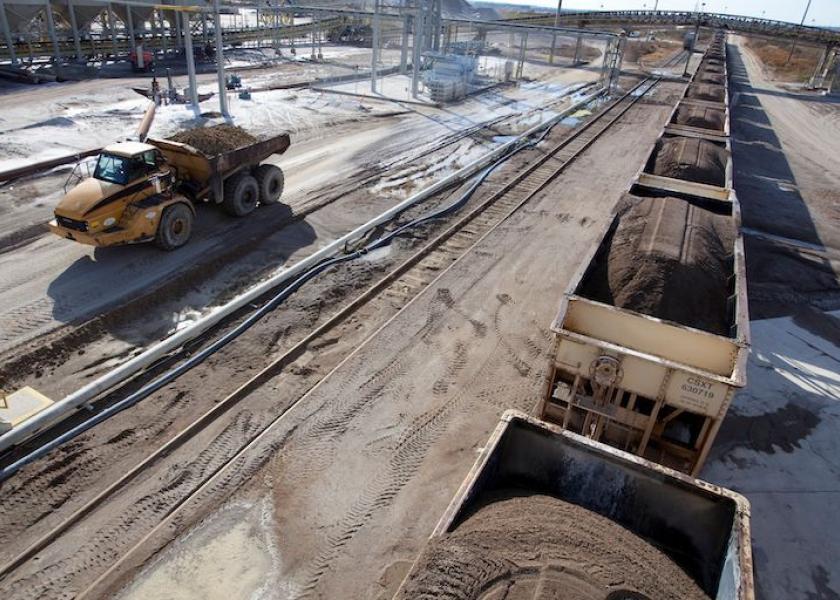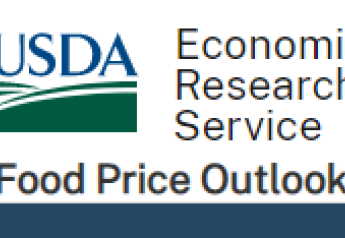Mosaic Wins Phosphate Countervailing Duty Case as Supply and Price Strains Continue

Nearly eight months after an investigation was launched, Mosaic won a countervailing duty case against the imports of phosphates from Morocco and Russia with the U.S. Department of Commerce. And the outcome could cause further strain on already higher phosphate prices.
Josh Linville focuses on fertilizer markets for StoneX Group. He says not only does this set up the U.S. as a premium market going forward, it also means Mosaic now controls 88% of the market from a U.S. point of view, which accounts for ownership, duties or lack of exports by that country.
For at least the next five years, the U.S. Department of Commerce will issue countervailing duty orders on phosphate fertilizers with cash deposit rates that will be approximately 20% for Moroccan producer OCP, 9% for Russian producer PhosAgro, 47% Russian producer EuroChem, and 17% for all other Russian producers.
Minnesota based Mosaic Company’s original complaint filed in July said producers of phosphate fertilizer in Morocco and Russia were receiving unfair government subsidies. The price tag in the complaint showed $729.4 million for Morocco and $299.4 million for Russia in 2019 alone.
Breaking News: Mosaic has won the phosphate counter vailing duty case against all parties (Moroccan/Russian producers).
This will set up the U.S. as a premium market going forward as it has to pay for inefficient trade flows to get imports. — Josh Linville (@JLinvilleFert) March 11, 2021
So, what does the outcome of this case mean for prices? Phosphate prices are already at the highest level since 2012, and Linville thinks the outcome of this case could push phosphate prices even higher.
“We will still ebb and flow with world price trends, but rather than being at parity to a discount to the world, we will now operate at a premium,” explains Linville. “This shuts down efficient trade routes to the U.S., with Morocco being the best example, and forces us to buy from places like Australia.”
Linville says one of the main catalysts of the phosphate price climb was the Mosaic countervailing case against Morocco and Russia.
“It started back in late June and early July, when Mosaic announced this countervailing duty case against Morocco, Russia,” he says. “Those were our two biggest importers. And all of a sudden they had to shut down imports because they didn't want to have to risk paying this duty rate.”
He says as that was happening, China, the largest producer of phosphates in the world, also had production issues. The supply strain started then, and he says it hasn’t stopped as the phosphate issues are now being felt around the globe.
“Australian farmers are begging for phosphates,” he adds. “India is also struggling to get offers. It is a global thing.”
Mosaic Says Decision Won't Further Impact Prices
However, earlier this week, Ben Pratt, senior vice president of government and public affairs at The Mosaic Company, was on AgriTalk, and told host Chip Flory the case won't impact prices.
"Prices of phosphate have gone up, and they have gone up globally," said Pratt. "But we don’t expect an affirmative decision to make much impact from here. It's global supply and demand. Supply is tight and demand is high.”
Pratt added the original case caused a supply issue because imports virtually stopped overnight.
"When the Moroccans and Russians stopped importing, there was a spike in prices, but now it’s come back down to match global benchmarks," he added. "Globally, phosphate supply is tight. Every ton we are all making is needed in the U.S., China, Brazil and everywhere else."
Pratt also added the outcome of this case is imperative in the long-term for farmers in the U.S.
"The most important thing to understand is enforcing fair trade leads to more competition, more stability and long-term assurance of American produced phosphate for American farms," he said.
OCP Group in Morocco Responds
OCP Group, a company that mines phosphates in Morocco, said it knew the decision was coming despite the strong arguments by the OCP Group. In an interview with The Scoop, Kevin Kimm, VP of commercial for OCP, said there is no basis for such duties. The group also said despite the decision, OCP recognizes the supply challenges that American farmers face and is determined to serve them in the future, and will explore the most appropriate options to do so.
"What the case filing has meant to the market is uncertainty," said Kimm. "Imports are needed to have reliable, viable supply to the farmer and to allow them to be competitive globally."
Kimm pointed out the tightening of the market occurred due to not enough supplies, which included monoammonium phosphate (MAP). It resulted in a 36% increase in prices to retailers and 25% increase to farmers at the farm gate.
"OCP is a global reputable company looking to serve the U.S. farmer," said Kimm. "What we care about is providing the US farmer viable products for a longer time to come. The phosphate business is a global market, and imports are needed."
To stay up-to-date on the latest fertilizer industry news, sign up for StoneX's Farm Fertilizer Newsletter.
Related Stories:
Faced with High Fertilizer Prices? Here's Why Sticker Shock Could Last Through Spring
Phosphate Prices Hit Highest Level Since 2012, As Nitrogen Prices Climb







